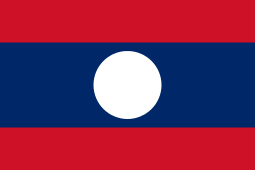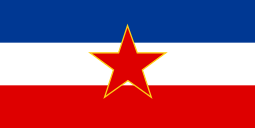Queen Aishwarya of Nepal
| Queen Aishwarya | |||||
|---|---|---|---|---|---|
 | |||||
| Queen consort of Nepal | |||||
| Tenure | 31 January 1972 – 1 June 2001 | ||||
| Coronation | 24 February 1975 | ||||
| Predecessor | Ratna | ||||
| Successor | Komal | ||||
| Born |
7 November 1949 Lazimpat Durbar, Kathmandu | ||||
| Died |
1 June 2001 (aged 51) Narayanhity Royal Palace, Kathmandu | ||||
| Spouse | King Birendra of Nepal | ||||
| Issue |
Crown Prince Dipendra Princess Shruti Prince Nirajan | ||||
| |||||
| House |
Rana dynasty (by birth) Shah dynasty (by marriage) | ||||
| Father | Kendra Shumsher Jang Bahadur Rana | ||||
| Mother | Shree Rajya Laxmi Devi Shah | ||||
| Religion | Hinduism | ||||
Aishwarya Rajya Laxmi Devi Shah (7 November 1949 – 1 June 2001) was the Queen of Nepal from 1972 to 2001 also referred as Bada Maharani. She was the wife and the second cousin of King Birendra and the mother of Crown Prince Dipendra, Prince Nirajan, and Princess Shruti. She was the eldest among the three daughters of late General Kendra Shumsher Jang Bahadur Rana and Shree Rajya Laxmi Devi Shah in Lazimpat Durbar, Lazimpat, Kathmandu.[1]
She was celebrated as a woman of classical beauty. Her ways of dressing and hairstyles are still famous among Nepalese women.
Education
She had her school education in St Helen's Convent of Kurseong, India and St Mary's of Jawalakhel. She passed S.L.C from Kanti Iswari Rajya Laxmi High School in 1963. She was enrolled in Tribhuvan University affiliated Padmakanya College and graduated in Arts in 1967.
Family background
She was from the Rana family which had ruled Nepal for 104 years, being the eldest daughter of General Kendra Shumsher Jang Bahadur Rana (1921–1982) and his wife Shree Rajya Laxmi Devi Shah (1928–2005).[2] After her death, her younger sister became Queen consort of Nepal. Her family had been the effective rulers of Nepal until the 1950s and she was ever conscious of this fact. In 1970, she married Birendra Bir Bikram Shah Dev, then Crown Prince of Nepal (and her second cousin).
Aishwarya's youngest sister Prekshya also married into the Shah dynasty marrying Gyanendra and Birendra's brother Prince Dhirendra who was killed in the palace massacre. They divorced in the 1980s.[3] Princess Prekshya was killed in a helicopter crash on 12 November 2001.
Queen of Nepal
After King Mahendra died in 1972, Birendra became the King and Aishwarya became the Queen consort.
Queen Aishwarya was energetic and outspoken, unlike her soft-spoken husband.[4] She arranged different social and cultural programmes.
Queen Aishwarya did not support democracy and it is said that she tried to insist her husband to maintain absolute monarchy for as long as possible. However, democracy finally came in 1990.
With the passage of time, however, Queen Aishwarya's dominance over her husband reportedly mellowed down. She was seen as a caring companion for her husband whose popularity, with the passage of time, increased.[5]
Literary works
She was interested in literary activities with the pen-name "Chadani Shah". She wrote about dozens of poems which has been collected in the title Chadani Shah, Aphnai Akash Aphnai Paribesh. The Anthology is prefaced by criticisms about Chadani Shah's literature by veteran critics of Nepalese Literature. She was a famous song composer and her songs were frequently aired by Radio Nepal and Nepal Television.
Death
Queen Aishwarya was shot dead along with her husband, King Birendra; her son, Prince Nirajan; her daughter, Princess Shruti; and seven other royal family members. It is widely believed that the motive for the Queen's murder was her strong opposition to the Crown Prince's proposed marriage to Devyani Rana. Her face was so badly disfigured by the gunshot wound that, for the widely attended state funeral procession, it was covered by a porcelain doll bearing her likeness.[6]
| Styles of Her Majesty Queen Aishwarya Rajya Laxmi Devi Shah | |
|---|---|
.jpg) | |
| Reference style | Her Royal Majesty |
| Spoken style | Your Royal Majesty |
| Alternative style | Ma'am |
Titles and honours
- Titles
- Lady Aishwarya Rajya Laxmi (1949-1970).
- H.R.H. The Crown Princess (Shree Panch Yuwaragi) Aishwarya Rajya Laxmi Kumari Devi Shah (1970-1972).
- H.M. The Queen of Nepal (Shree Panch Badamaharani) Aishwarya Rajya Laxmi Devi Shah (1972-2001).
- National Honours
- Member of the Order of Ojaswi Rajanya (03/03/1972)
- Member of the Order of Nepal Pratap Bhaskara (24/02/1975)[7]
- Member of the Order of Gorkha Dakshina Bahu (1975)
- Member of the Order of the Star of Nepal (27/03/1999)
- Member of the Order of Nepal Shreepada
- King Mahendra Investiture Medal (02/05/1956)
- King Birendra Investiture Medal (24/02/1975)
- Commemorative Silver Jubilee Medal of King Birendra (31/01/1997)
- Foreign Honours
-
 Laos : Dame Grand Cross of Order of the Million Elephants and the White Parasol (1970)
Laos : Dame Grand Cross of Order of the Million Elephants and the White Parasol (1970) -
 Japan : Dame Grand Cordon of the Order of the Chrysanthemum (1975)
Japan : Dame Grand Cordon of the Order of the Chrysanthemum (1975) -
 Thailand : Dame Grand Cordon of the Order of Chula Chom Klao (1979)
Thailand : Dame Grand Cordon of the Order of Chula Chom Klao (1979) -
 Germany : Dame Grand Cross Special Class of the Order of Merit of the Federal Republic of Germany (1986)
Germany : Dame Grand Cross Special Class of the Order of Merit of the Federal Republic of Germany (1986) -
 Finland : Dame Grand Cross of the Order of the White Rose of Finland (1989)
Finland : Dame Grand Cross of the Order of the White Rose of Finland (1989) -
 Denmark : Grand Commander of the Order of the Dannebrog (17/10/1989)
Denmark : Grand Commander of the Order of the Dannebrog (17/10/1989) -
 France : Dame of the National Order of Merit (02/05/1983)[8]
France : Dame of the National Order of Merit (02/05/1983)[8] -
 Pakistan : Nishan-e-Imtiaz (1983)
Pakistan : Nishan-e-Imtiaz (1983) -
 Yugoslavia : Great Star of the Order of the Yugoslav Star (02/02/1974)
Yugoslavia : Great Star of the Order of the Yugoslav Star (02/02/1974) -
 Egypt : Supreme class of Order of the Virtues (1974)
Egypt : Supreme class of Order of the Virtues (1974) -
 Spain : Dame Grand Cross of the Order of Isabella the Catholic (17/09/1983)[9]
Spain : Dame Grand Cross of the Order of Isabella the Catholic (17/09/1983)[9] -
 Spain : Dame Grand Cross of the Order of Charles III (13/11/1987)[10]
Spain : Dame Grand Cross of the Order of Charles III (13/11/1987)[10] -
.svg.png) Romania: Dame Grand Cross of the Order of 23 August (1987)[11]
Romania: Dame Grand Cross of the Order of 23 August (1987)[11]
References
- ↑ Royal Ark
- ↑ Royal Ark
- ↑ Genealogy
- ↑ Telegraph
- ↑ BBC
- ↑ Amy Willesee & Mark Whittaker (2004). Love & Death in Kathmandu A Strange Tale of Royal Murder, 1st U.S. ed. New York : St. Martin's Press, 2004. ISBN 1-84413-558-6 / 1-84413-558-6
- ↑ Royal Ark
- ↑ Bilateral Relations
- ↑ Boletín Oficial del Estado
- ↑ Boletín Oficial del Estado
- ↑ Royal Ark
Sources
| Royal titles | ||
|---|---|---|
| Preceded by Ratna |
Queen Consort of Nepal 1972–2001 |
Succeeded by Komal |